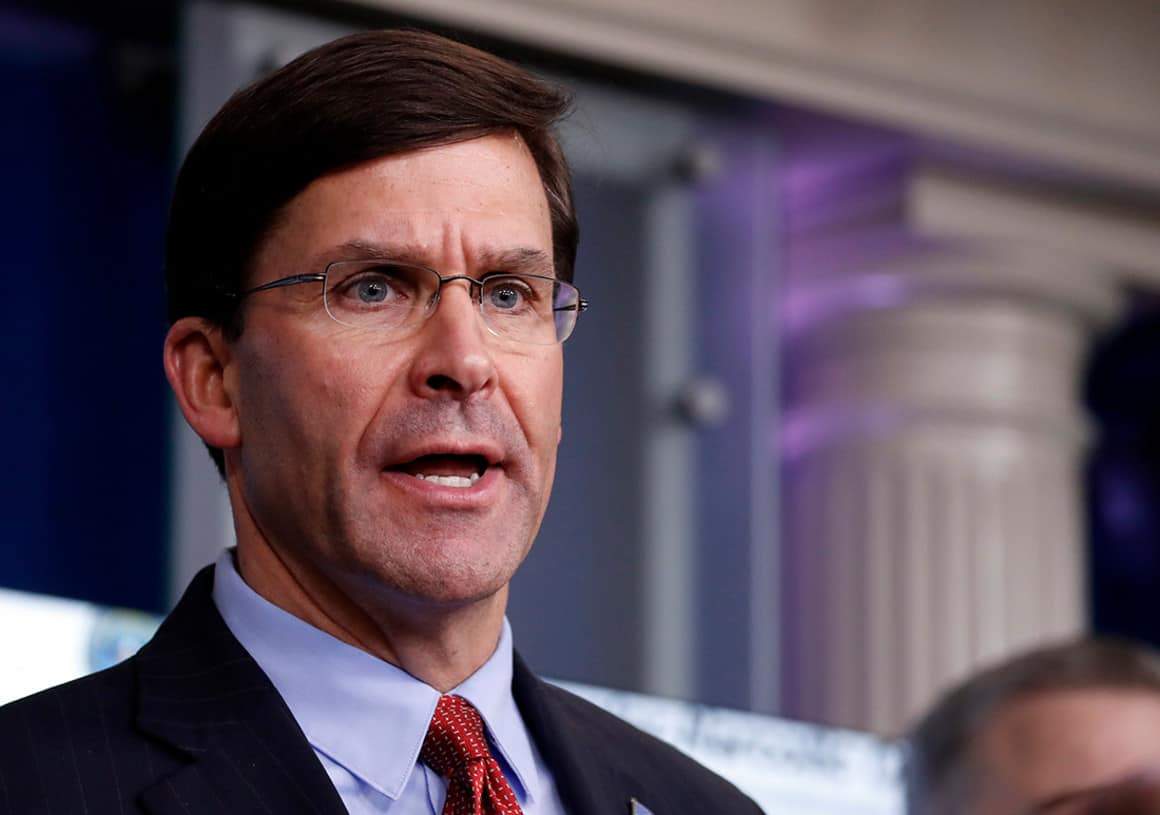‘How we hold leaders accountable’: Esper defends firing of Navy captain who raised coronavirus alarm

“The Navy has a culture of swiftly and decisively removing captains if they lose confidence in them,” the Pentagon chief said.
Defense Secretary Mark Esper on Sunday defended the firing of the Navy captain who sounded the alarm about a coronavirus outbreak aboard an aircraft carrier, characterizing the commanding officer’s ouster as an “example of how we hold leaders accountable.”
On CNN’s “State of the Union,” Esper said acting Navy Secretary Thomas Modly “made a very tough decision” Thursday to relieve Capt. Brett Crozier of command of the USS Theodore Roosevelt, but the Pentagon chief added that it was a decision he supported.
“It was based on his view that he had lost faith and confidence in the captain based on his actions. It was supported by Navy leadership,” Esper said. “And I think it’s just another example of how we hold leaders accountable for their actions.”
Crozier was fired for writing a searing letter to Navy leaders notifying them of a spike in cases of Covid-19, the disease caused by the novel coronavirus, among sailors on the carrier. Modly has argued that Crozier did not follow the proper chain of command in reporting his concerns, which Modly claimed were already being addressed at the time Crozier sent his letter.
Pressed on whether there should have been a completed probe into Crozier’s conduct before his firing — in the same way other relieved Navy commanders had been investigated — Esper said “there is an investigation ongoing” and that it “is not unheard of” to fire a commander without the benefit of a full review.
“It’s certainly not unique to the Navy,” he said. “The Navy has a culture of swiftly and decisively removing captains if they lose confidence in them.”
Esper also insisted President Donald Trump did not order the captain to be relieved of his command, despite a report that Modly told a colleague Wednesday: “Breaking news: Trump wants him fired.”
“This was Secretary Modly’s decision,” Esper said. “He briefed me about it, and I took the advice of the [Chief of Naval Operations] and [Chairman of the Joint Chiefs of Staff Gen. Mark Milley] with regard to it, and told him I would support his decision.”
Addressing Crozier’s firing at a White House coronavirus task force news briefing Saturday, the president fiercely criticized the captain’s actions and his letter, which urged “decisive action” to evacuate the “majority of personnel” from the carrier.
“I thought it was terrible what he did: To write a letter? I mean, this isn’t a class on literature,” Trump said, adding Crozier “shouldn’t be talking that way in a letter.”
Esper declined Sunday to explicitly agree with the commander in chief’s assessment, asserting that he could not “get too much into the facts of the matter” because of the ongoing investigation.
“This could ultimately come to my desk,” he said. “I think Secretary Modly laid out very reasonably, very deliberately the reasons why, and I think when all those facts come to bear, we’ll have a chance to understand why Secretary Modly did what he did.”
Photo: Defense Secretary Mark Esper. | Alex Brandon/AP Photo
Link: https://www.politico.com/news/2020/04/05/esper-defends-firing-navy-captain-coronavirus-165635











